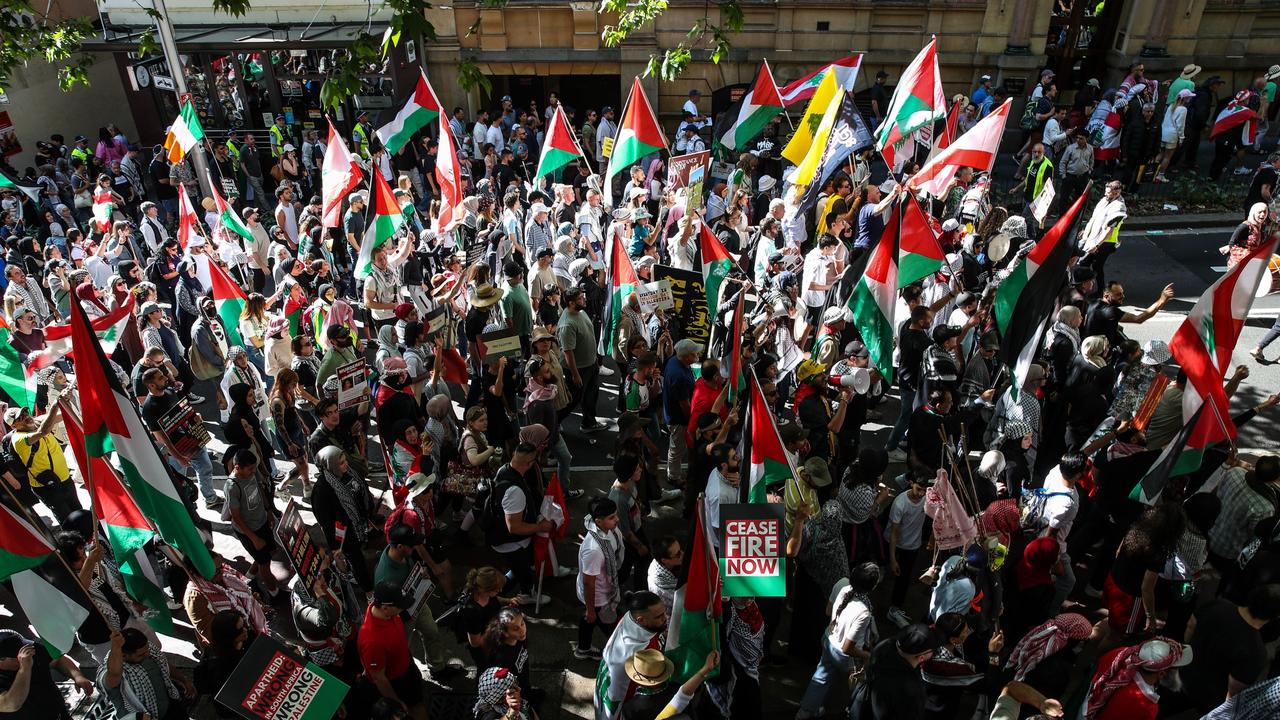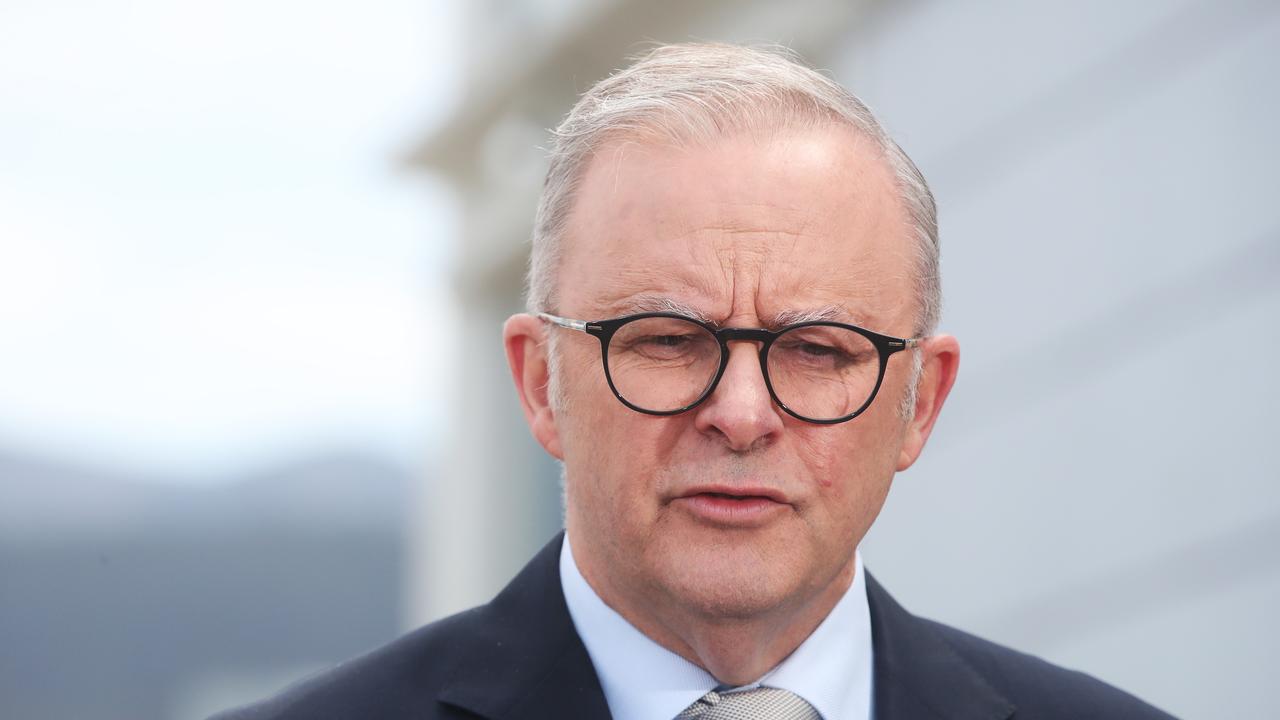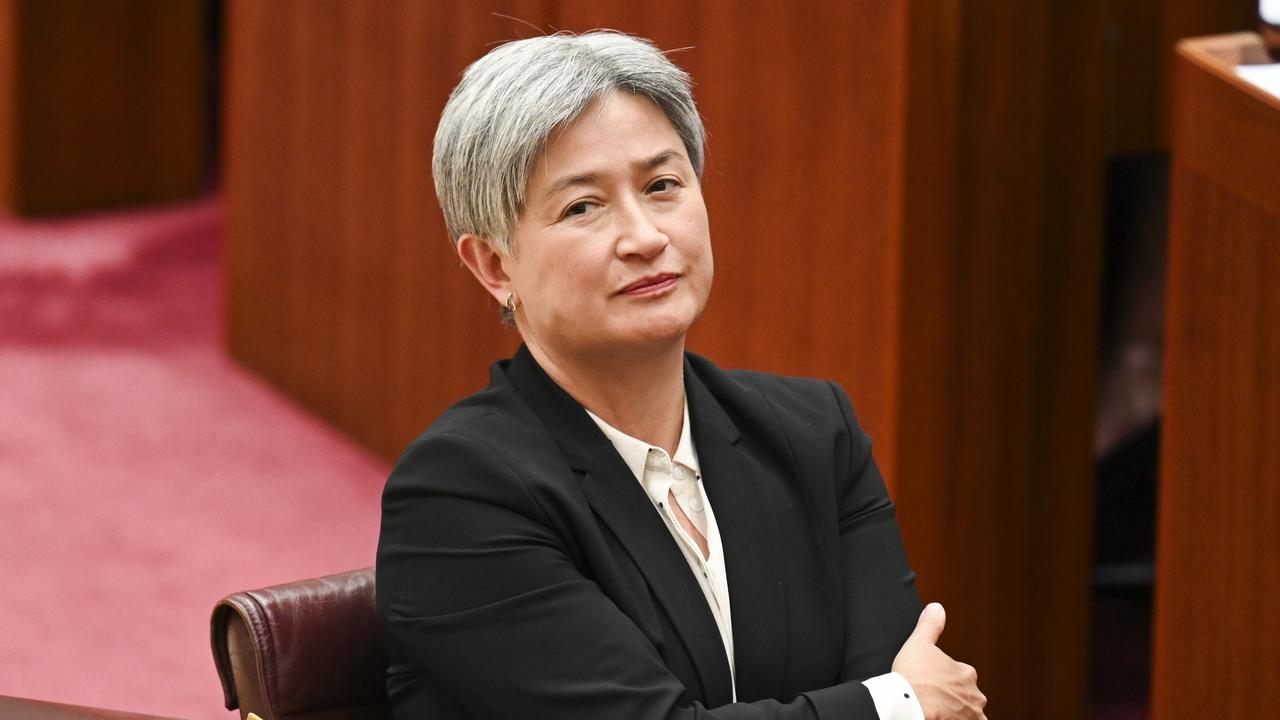Fudging on extremism has real consequences
The past 12 months has felt like a moral vacuum in Australia. Tolerance has failed to confront intolerance. Activists masquerading as politicians have parroted ugly demands.
Dallas McInerney, the chief executive of Catholic Schools NSW, shone last week for saying nothing more than what most of us already thought.
He balanced the scales, if you like, by stating the obvious.
He called out the “utter failure” of universities nationwide to counter outbreaks of Pro-Palestine protests marked by their menace and marauding absolutism.
He also called out teachers who wore keffiyehs to class for seeking to “indoctrinate” rather than “enlighten”.
McInerney’s candour is likely shared by a silent majority who wonder at the barbarism of the protest clarion calls, and who need not engage in the quibbling over the legalities of waving terrorist flags to know that doing so is drastically wrong.
He invites us to wonder why the safety of a section of the Australian community could be so readily jeopardised, in large part because the leaders and institutions charged with protecting such interests have been cravenly reluctant to do so.

His point also reminds us of the lessons of British Prime Minister Neville Chamberlain, who figured that appeasing Hitler might temper the German’s obsession with conquest. Pandering to extremism, his country discovered, promotes more extremism.
The past 12 months has felt like a moral vacuum in Australia. Tolerance has failed to confront intolerance. Activists masquerading as politicians have parroted ugly and infantile demands which ignore the battlelines of this crisis, as well as the battlelines of many Middle East conflicts over the past 80 years.
New beach house owner and prime minister Anthony Albanese has demoted himself to spectator status throughout much of it. His only conviction has been his adherence to statements and speeches which lack conviction.
One day, Albanese might get around to delivering the speech that had to be delivered, the one which explains who we are and what we believe in – and who we are not and what we do not believe in.

Six former prime ministers have condemned hate speech against Australians by Australians. But this prime minister has fudged on the big questions which, until he stumbled over them, had never seemed that hard to answer.
You may not always like what the likes of NSW’s Chris Minns and Opposition Leader Peter Dutton have to say. But you like that they are unafraid to say it.
Albanese’s reticence also goes to a deeper misunderstanding. Call it a refusal to acknowledge the blindingly obvious.
There are no compromises in existential war.
There will be no Israel in the harder visions of Palestine statehood. Calling for ceasefires, and possible breaches of international law, misses the point. Laying down rules, from the cheap seats on the other side of the world, does not address the dire issue of one people’s determination to obliterate another people.

Foreign Minister Penny Wong has played at Pollyanna behind a lectern this year. She has tut-tutted at Israel, like a schoolteacher who sees a playground brawl as an opportunity for innovative safety strategies, such as forbidding children from punching another.
She demanded the imposition of a two-state solution last month, and never mind the six or seven compelling reasons why it will not happen, not least the Palestinian intolerance for any version of Israel. Her words sounded like the geopolitical equivalent of inviting two grand final teams to accept a draw.
Wong heads our national interests overseas, but she has also seemed mindful of electoral interests at home. The Greens and Muslim votes may swing results in marginal ALP seats.
Wong has lamented the loss of civilians and the humanitarian crisis in Gaza. Both, of course, seem like reasonable positions, except that they have been offered without context for the blindingly obvious: that this war was triggered by a Hamas massacre; that if Israel did not fight back, Israel and its people would cease to be.
She was heckled last week, by Pro-Palestine protesters who had decided that she had “blood on her hands” because Australia had failed to act against Israel.
There will be no satisfying the more extreme elements, not unless those extreme elements succeed in destroying Australia’s friend and ally.
What remains obvious? That there will be more shows of anti-Semitism, and more efforts of appeasement in response, in loops which will have no impact on events in the Middle East, but could have real consequences here in Australia.





